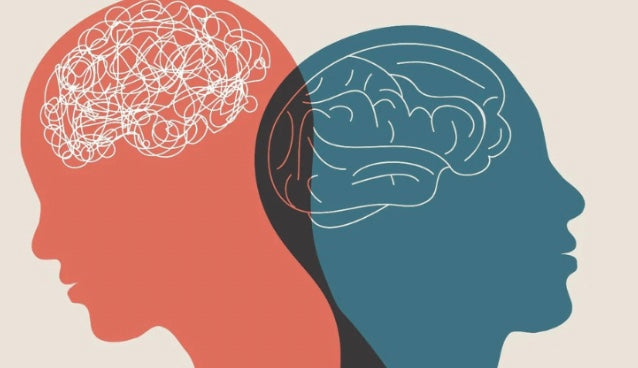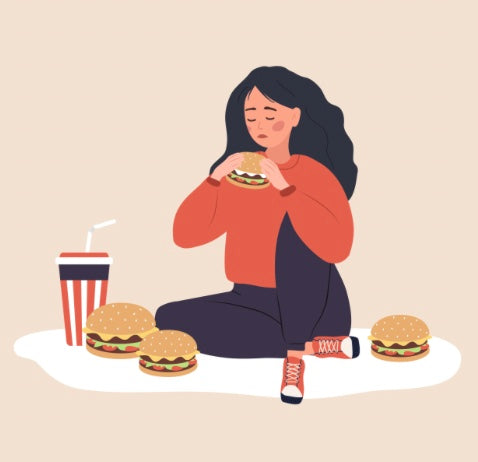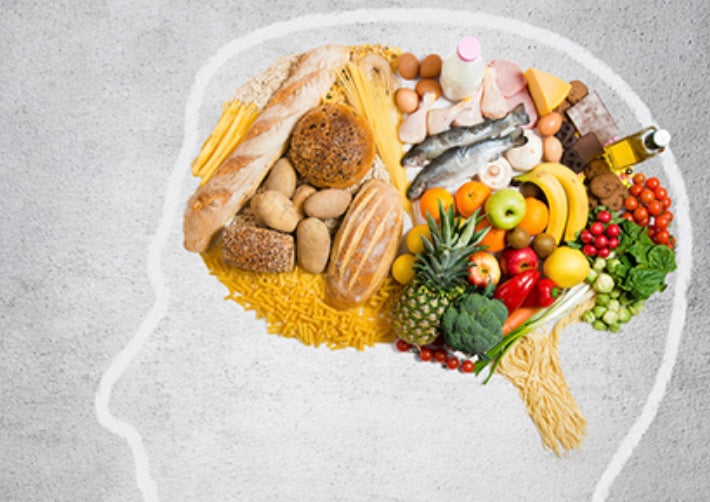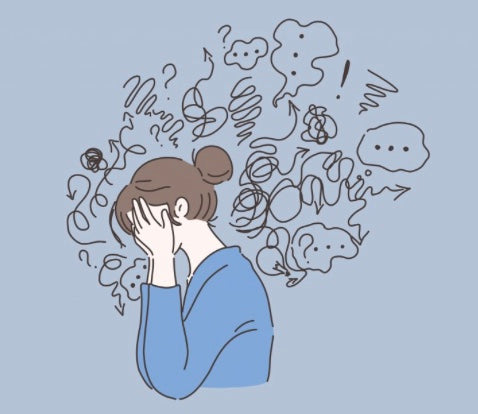Depression and Anxiety: How can we help ourselves?
Do We Ever Really Read the Labels?
By Sophie Cross
August 16, 2024
July 18, 2024

Dealing with depression and anxiety can be extremely isolating. Knowing how to navigate through life and feelings, whether medication is involved or not, isn’t as black and white as some may think. If you have ever felt like you are alone or that no one can understand what you’re going through, believe me I have been there. While in the midst of struggling with these problems, it seems that there is no way out. Talking to a therapist and taking medication for these issues is a great solution for many people. Without this resource, so many people wouldn’t be able to handle their struggles on their own. For many, including those who are using medication, there are also other factors that can improve function and help with the symptoms that come with mental health issues. I think many underestimate the power that food has over us.
Healthy Eating and Food
For starters, eating a healthier diet and having healthy routines results in elevated moods in general. Despite other issues going on, it is always a positive thing to be in a good routine and exhibit positive eating habits. This has the ability to make us feel better about ourselves, increase productivity, keep our minds sharp, and start every day on the right foot.
Dealing with depression and anxiety can be extremely isolating. Knowing how to navigate through life and feelings, whether medication is involved or not, isn’t as black and white as some may think. If you have ever felt like you are alone or that no one can understand what you’re going through, believe me I have been there. While in the midst of struggling with these problems, it seems that there is no way out. Talking to a therapist and taking medication for these issues is a great solution for many people. Without this resource, so many people wouldn’t be able to handle their struggles on their own. For many, including those who are using medication, there are also other factors that can improve function and help with the symptoms that come with mental health issues. I think many underestimate the power that food has over us.
Healthy Eating and Food
For starters, eating a healthier diet and having healthy routines results in elevated moods in general. Despite other issues going on, it is always a positive thing to be in a good routine and exhibit positive eating habits. This has the ability to make us feel better about ourselves, increase productivity, keep our minds sharp, and start every day on the right foot.


Diet and Depression
Many people carry a stigma around depression that people who experience it tend to eat unhealthy and move their bodies less. While this can easily be the case, and depression can be the cause, it can also be questioned. Is this the other way around? Could starting unhealthy eating habits lead to depression down the line? The start of this cycle is unclear, but what is clear is that the two go hand and hand. Our brains don’t respond well to increasingly high amounts of sugar, fat, and carbohydrates. This hinders our abilities to function in a productive way, and changes the way we feel about ourselves. These negative thoughts can definitely affect mood, and lead to more unhealthy eating. I know for me, when I wasn’t prioritizing my diet, I didn’t feel good about myself at all. For some reason, when in this state our brains try to seek comfort. A main source of this for a lot of people does happen to be food. This led me to continue the cycle of eating badly, feeling badly about it, and then two hours later eating badly again. This is such an uncomfortable way of living, and it can be easy to find habits to break out of it. Of course, eating good food can be a beautiful and fun thing to experience on your own and with others, I think it is just important to find the moderation in it.
Diet and Depression
Many people carry a stigma around depression that people who experience it tend to eat unhealthy and move their bodies less. While this can easily be the case, and depression can be the cause, it can also be questioned. Is this the other way around? Could starting unhealthy eating habits lead to depression down the line? The start of this cycle is unclear, but what is clear is that the two go hand and hand. Our brains don’t respond well to increasingly high amounts of sugar, fat, and carbohydrates. This hinders our abilities to function in a productive way, and changes the way we feel about ourselves. These negative thoughts can definitely affect mood, and lead to more unhealthy eating. I know for me, when I wasn’t prioritizing my diet, I didn’t feel good about myself at all. For some reason, when in this state our brains try to seek comfort. A main source of this for a lot of people does happen to be food. This led me to continue the cycle of eating badly, feeling badly about it, and then two hours later eating badly again. This is such an uncomfortable way of living, and it can be easy to find habits to break out of it. Of course, eating good food can be a beautiful and fun thing to experience on your own and with others, I think it is just important to find the moderation in it.


Scientifically, How Can Food Help Or Hurt Our Mood?
Foods that are higher in saturated fats and trans fats can directly cause inflammatory responses in our brain, making it easier for mood levels to fall and affect our day to day life. In addition, fried food and sugary products are directly linked to an increase in depression. Because they make us feel better in the moment, it is so easy to immediately crave something like this to make us happier. While these foods taste great in the moment, we don’t often think about how they will affect us in the long run, especially detached from the physical assumptions. So, what are ways that we can change diet to avoid these symptoms, hopefully relieving some of them and improving mood overall? Fish, dark chocolate, eggs, and healthy acids contained in nuts are all great sources of natural nutrients that produce the positive chemicals in our brains. This makes production of these components more frequent, letting us experience a constant state of happiness, rather than quick bursts followed by a crash.
Scientifically, How Can Food Help Or Hurt Our Mood?
Foods that are higher in saturated fats and trans fats can directly cause inflammatory responses in our brain, making it easier for mood levels to fall and affect our day to day life. In addition, fried food and sugary products are directly linked to an increase in depression. Because they make us feel better in the moment, it is so easy to immediately crave something like this to make us happier. While these foods taste great in the moment, we don’t often think about how they will affect us in the long run, especially detached from the physical assumptions. So, what are ways that we can change diet to avoid these symptoms, hopefully relieving some of them and improving mood overall? Fish, dark chocolate, eggs, and healthy acids contained in nuts are all great sources of natural nutrients that produce the positive chemicals in our brains. This makes production of these components more frequent, letting us experience a constant state of happiness, rather than quick bursts followed by a crash.


Anxiety And Eating
The topic of diet and health can easily be a huge contributor to anxiety. The pressures to stay on track, eat the best foods, and avoid harmful ingredients can sometimes do more harm than good. While this can be seen as counterintuitive, because eating healthy is supposed to suppress these negative feelings, I think it’s more about the general idea of it. Not necessarily the act, but the expectations of keeping up can cause very negative feelings. I think the best way to avoid this is just to have the knowledge to incorporate in day to day life without putting too much pressure on it. Moderation is amazing, and every day looks different for everyone. So keeping in mind the healthier choices and implementing them as much as possible can lessen these feelings of anxiety
What Foods Help With Anxiety?
Are there certain foods or ingredients that can actually treat symptoms of anxiety? Eating a breakfast that is high in protein helps us to regulate blood sugar and start our day on the right foot, making it harder for our minds to take over and freak out about different stressors or the food we are eating. It also keeps us fuller longer, hopefully illuminating constant thought of food and diet for long periods of time. In addition, eating complex carbs has direct effects on our brain chemistry. They are thought to increase levels of serotonin in our brains, leaving us feeling much more calm and giving the ability to process our thoughts clearly. Something that people may find contradictory is that eating less can actually increase anxiety. When our bodies are in starvation mode and missing essential nutrients, it throws off chemicals in our brains. So, eating healthy does not mean eating less, it just means eating the right things.
Anxiety And Eating
The topic of diet and health can easily be a huge contributor to anxiety. The pressures to stay on track, eat the best foods, and avoid harmful ingredients can sometimes do more harm than good. While this can be seen as counterintuitive, because eating healthy is supposed to suppress these negative feelings, I think it’s more about the general idea of it. Not necessarily the act, but the expectations of keeping up can cause very negative feelings. I think the best way to avoid this is just to have the knowledge to incorporate in day to day life without putting too much pressure on it. Moderation is amazing, and every day looks different for everyone. So keeping in mind the healthier choices and implementing them as much as possible can lessen these feelings of anxiety
What Foods Help With Anxiety?
Are there certain foods or ingredients that can actually treat symptoms of anxiety? Eating a breakfast that is high in protein helps us to regulate blood sugar and start our day on the right foot, making it harder for our minds to take over and freak out about different stressors or the food we are eating. It also keeps us fuller longer, hopefully illuminating constant thought of food and diet for long periods of time. In addition, eating complex carbs has direct effects on our brain chemistry. They are thought to increase levels of serotonin in our brains, leaving us feeling much more calm and giving the ability to process our thoughts clearly. Something that people may find contradictory is that eating less can actually increase anxiety. When our bodies are in starvation mode and missing essential nutrients, it throws off chemicals in our brains. So, eating healthy does not mean eating less, it just means eating the right things.


Wrapping Up The General Ideas
In conclusion, we have learned that food has huge impacts on pretty much every aspect of our lives. While it can find ways to cause symptoms of anxiety and depression, it can also be used to treat them. Finding balance and prioritizing ourselves is the most important factor. Ask yourself how you feel after eating certain things, and reflect on whether you enjoy those feelings or not. Everyone is different and everybody's bodies function differently, so taking the time to learn about yourself can make huge positive differences.
Wrapping Up The General Ideas
In conclusion, we have learned that food has huge impacts on pretty much every aspect of our lives. While it can find ways to cause symptoms of anxiety and depression, it can also be used to treat them. Finding balance and prioritizing ourselves is the most important factor. Ask yourself how you feel after eating certain things, and reflect on whether you enjoy those feelings or not. Everyone is different and everybody's bodies function differently, so taking the time to learn about yourself can make huge positive differences.


